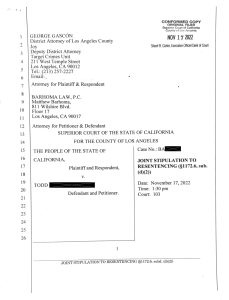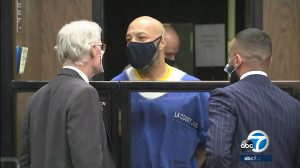California Criminal Appeals Attorneys Helping Obtain Resentencing Hearings Based on New Legal Developments
Note: AB 1310 is proposed legislation and is not yet enacted law. Thus, any of the remedies created by AB 1310 are not yet available and will only become available if and when AB 1310 is signed into law by Governor Gavin Newsome. This was drafted in 2023.
California lawmakers have been busy over the past decade revamping much of the state’s criminal justice system. In particular, these reforms have been centered around California’s harsh sentencing laws, which previously were among the harshest in the nation. It’s with this backdrop that Assembly Member McKinnor introduced “Assembly Bill 1310”, which is one of the state’s newest resentencing measures.
 Los Angeles Criminal Defense and Appeals Lawyer Blog
Los Angeles Criminal Defense and Appeals Lawyer Blog



 In 2019, SB 1437 was enacted, amending Penal Code § 188 and § 189 and creating Penal Code § 1170.95. Pursuant to SB 1437, accomplice liability for felony murder and murder by way of the natural and probable consequence doctrine was substantially changed, allowing individuals convicted to seek to vacate their murder convictions and obtain resentencing relief. Resentencing is available for individuals convicted of murder, attempted murder, and/or manslaughter if they demonstrate:
In 2019, SB 1437 was enacted, amending Penal Code § 188 and § 189 and creating Penal Code § 1170.95. Pursuant to SB 1437, accomplice liability for felony murder and murder by way of the natural and probable consequence doctrine was substantially changed, allowing individuals convicted to seek to vacate their murder convictions and obtain resentencing relief. Resentencing is available for individuals convicted of murder, attempted murder, and/or manslaughter if they demonstrate:









